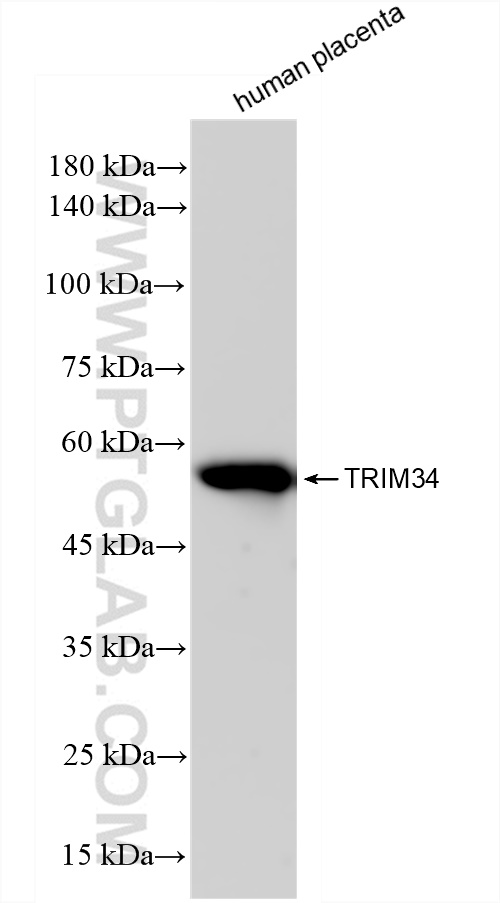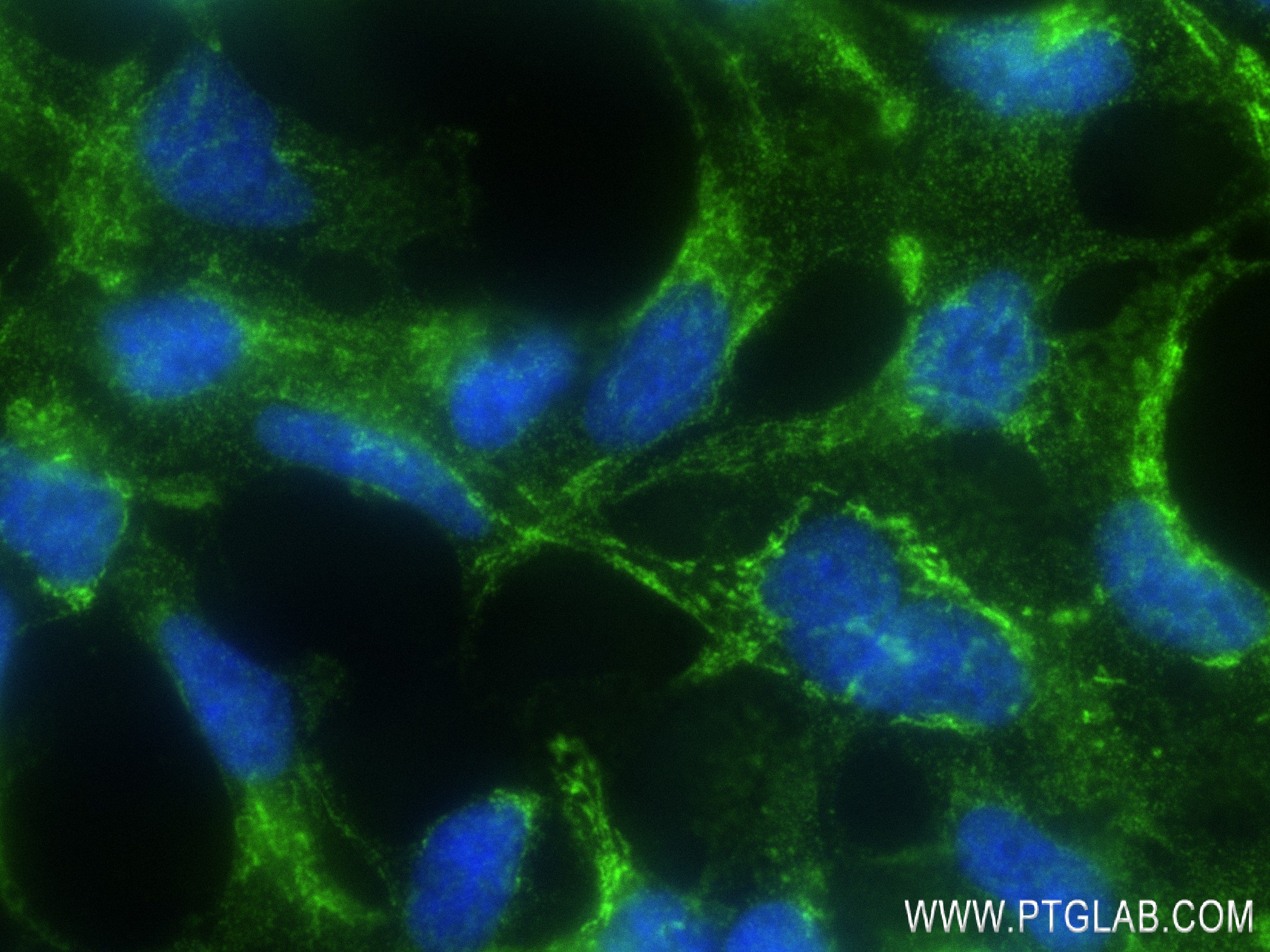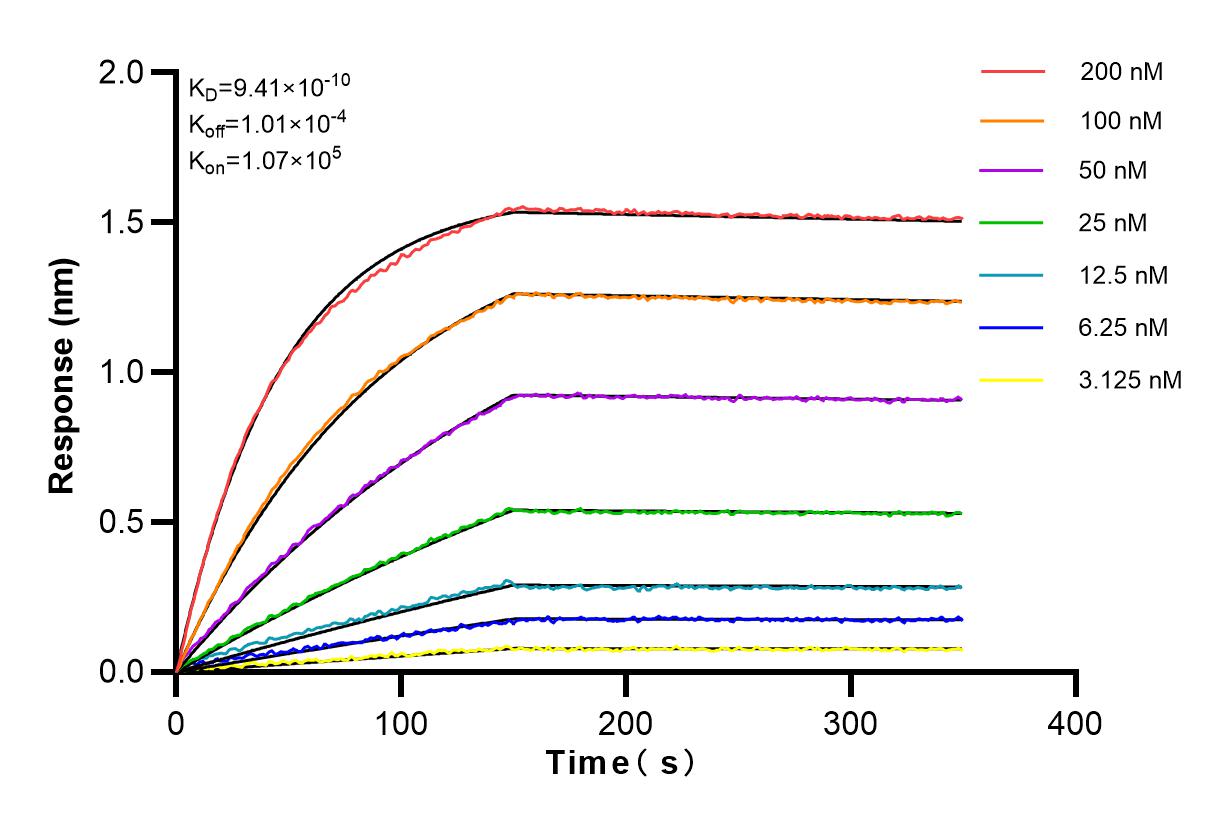验证数据展示
经过测试的应用
| Positive WB detected in | K-562 cells, human placenta tissue |
| Positive IF/ICC detected in | HEK-293 cells |
推荐稀释比
| 应用 | 推荐稀释比 |
|---|---|
| Western Blot (WB) | WB : 1:2000-1:10000 |
| Immunofluorescence (IF)/ICC | IF/ICC : 1:50-1:500 |
| It is recommended that this reagent should be titrated in each testing system to obtain optimal results. | |
| Sample-dependent, Check data in validation data gallery. | |
产品信息
83316-2-RR targets TRIM34 in WB, IF/ICC, ELISA applications and shows reactivity with Human samples.
| 经测试应用 | WB, IF/ICC, ELISA Application Description |
| 经测试反应性 | Human |
| 免疫原 | TRIM34 fusion protein Ag34444 种属同源性预测 |
| 宿主/亚型 | Rabbit / IgG |
| 抗体类别 | Recombinant |
| 产品类型 | Antibody |
| 全称 | tripartite motif-containing 34 |
| 别名 | IFP1, RING finger protein 21, RNF21, TRIM34, tripartite motif containing 34 |
| 计算分子量 | 57 kDa |
| 观测分子量 | 31 kDa, 57 kDa |
| GenBank蛋白编号 | NM_001003827 |
| 基因名称 | TRIM34 |
| Gene ID (NCBI) | 53840 |
| RRID | AB_3670982 |
| 偶联类型 | Unconjugated |
| 形式 | Liquid |
| 纯化方式 | Protein A purification |
| UNIPROT ID | Q9BYJ4 |
| 储存缓冲液 | PBS with 0.02% sodium azide and 50% glycerol , pH 7.3 |
| 储存条件 | Store at -20°C. Stable for one year after shipment. Aliquoting is unnecessary for -20oC storage. |
背景介绍
Tripartite motif 34 (TRIM34) is a member of TRIM family that can be highly induced by type I Interferon. TRIM34 has a stimulative role in cell apoptosis and a suppressive role in inflammation. TRIM34 serves a tumor suppressor role in the occurrence and development of colon cancer by enhancing cell apoptosis. TRIM34 possesses at least three kinds of isoforms: the long form at 97 kDa, medium form at 57 kDa, the short form 31 kDa (PMID: 11013086, 31956709).
实验方案
| Product Specific Protocols | |
|---|---|
| WB protocol for TRIM34 antibody 83316-2-RR | Download protocol |
| IF protocol for TRIM34 antibody 83316-2-RR | Download protocol |
| Standard Protocols | |
|---|---|
| Click here to view our Standard Protocols |



